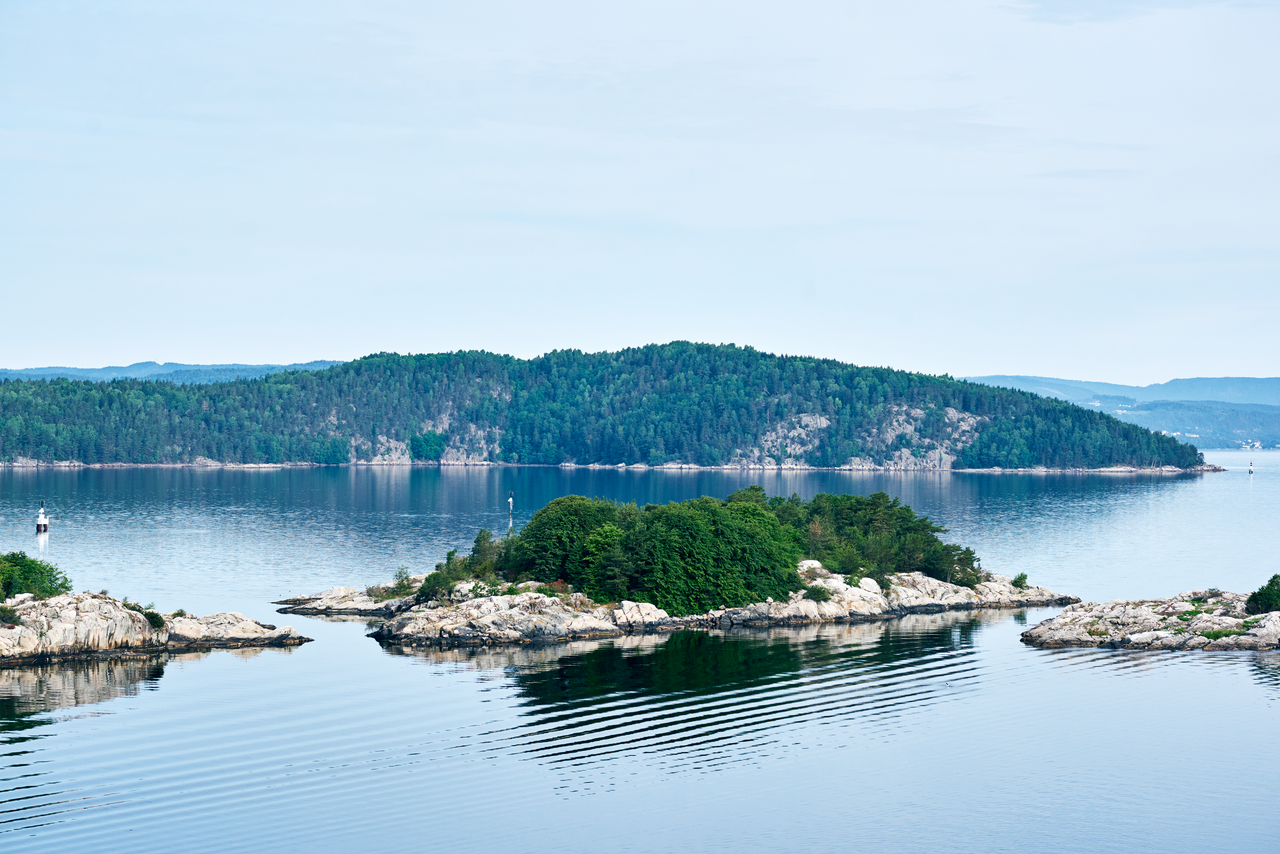
Decarbonisation
Today, the transport and logistics industry is second only to the energy sector when it comes to emissions of greenhouse gases, and emissions have only increased in recent years. The EU has set a goal of being the first climate-neutral continent by 2050, which requires ambitious changes in transport and logistics industry – and that includes us.
We need a clear path and significant investments to move our industry from being powered by fossil fuels to instead operate on new technologies and alternative fuels, for the good of our planet and for our business.
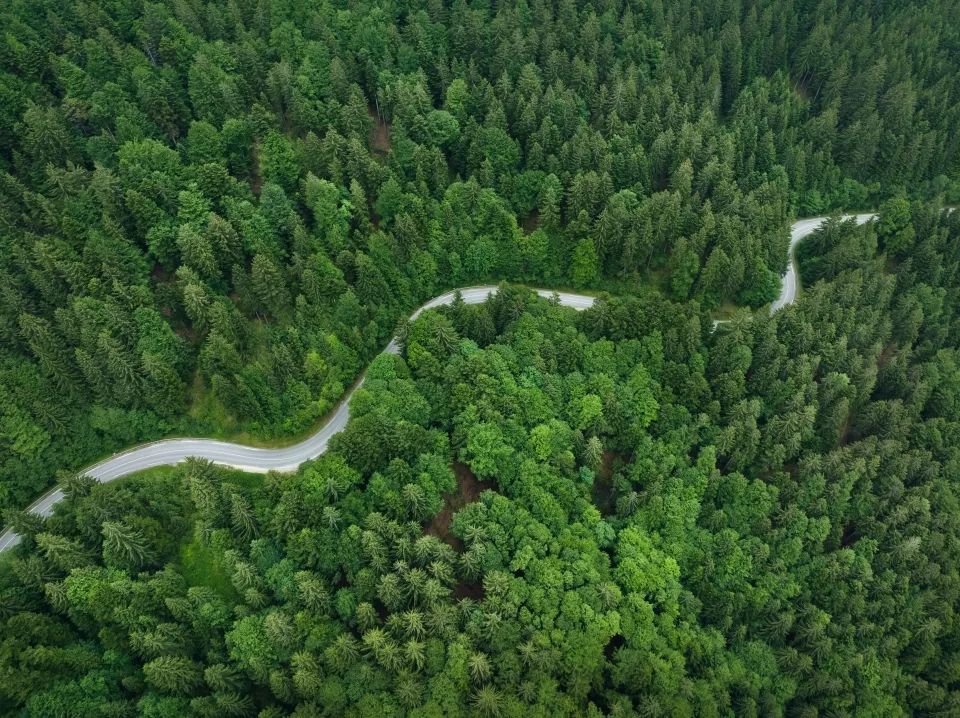
Want to know more about our approach to decarbonisation? Visit our blog
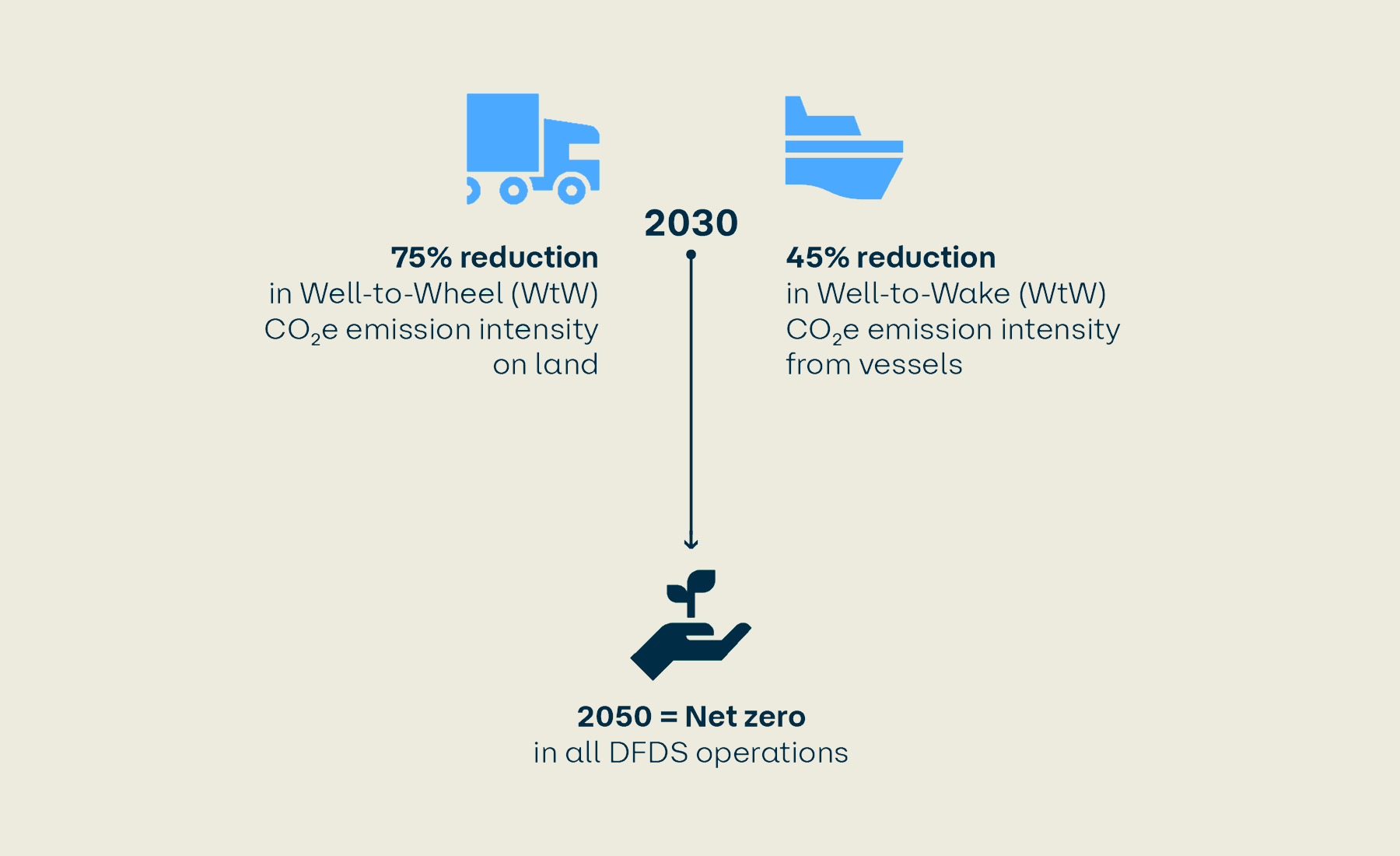
Vision and targets – net-zero by 2050:
At DFDS, we have the ambition to decarbonise our operations as soon as it is feasibly possible. To ensure we reach this goal, we have set minimum targets for decarbonisation of our vessel operations, road and land transport, and our warehousing.
For vessel operation: we will reduce Well-to-Wake CO2e emission intensity by 45% by 2030 from a 2008 baseline, and be net zero by 2050.
For road and land transport and warehousing: we will reduce Well-to-Wheel CO2e emission intensity by 75% by 2030 from a 2022 baseline, and be net zero by 2050.

Decarbonisation techniques
The main techniques to decarbonise involve using less energy, using cleaner energy, as well as carbon capture, removal and storage.
Our strategy is heavily based on the first two, within which we focus on four main techniques: efficiency, electrification, alternative fuels and circularity.
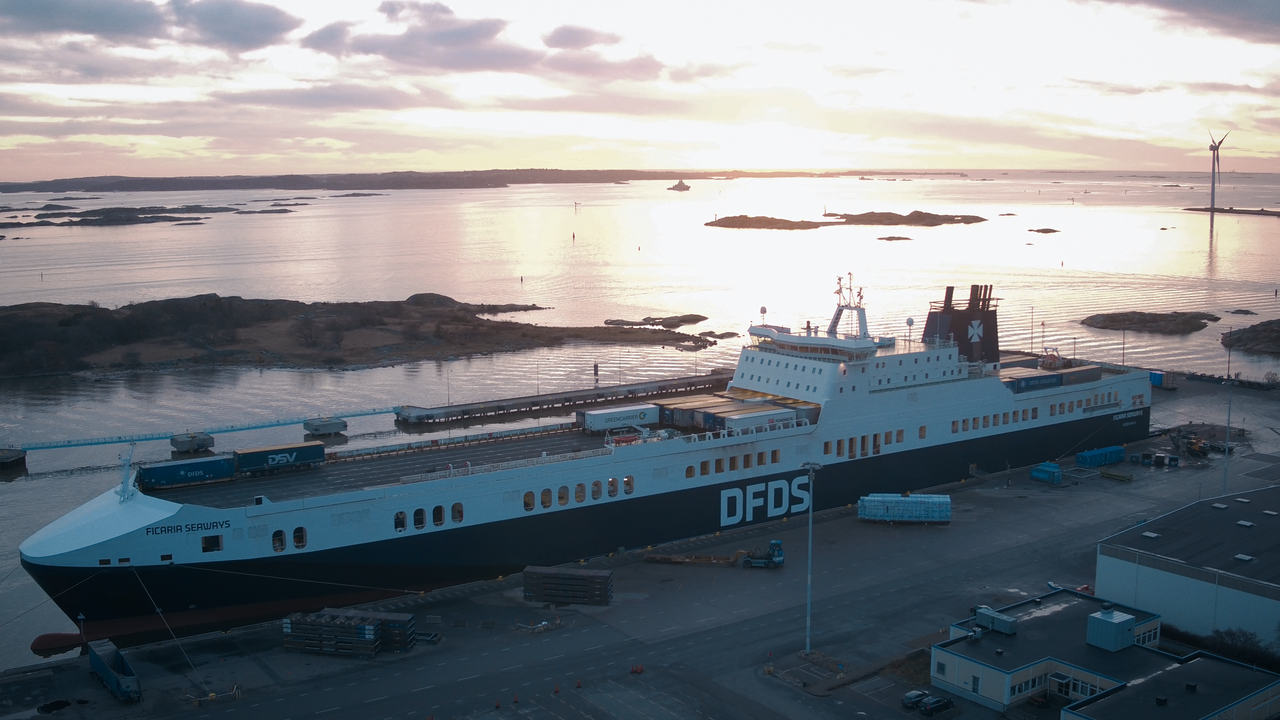
Decarbonisation at sea
Decarbonisation at sea is challenging. Short term, we focus heavily on efficiency –doing more with less fuel. But long term, to meet our net-zero goal, we will introduce new fuels and new technologies for the vessels of tomorrow.
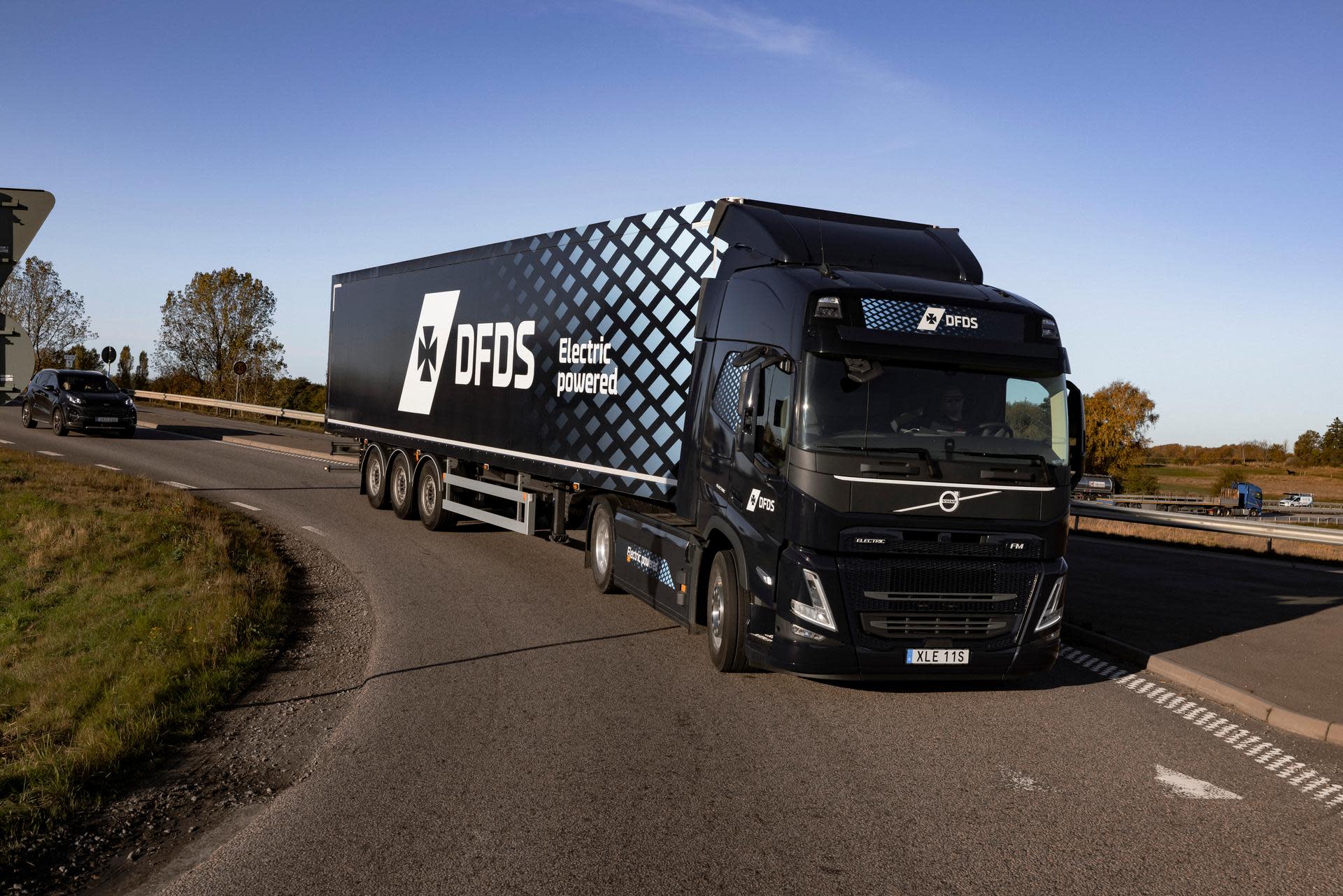
Decarbonisation on land
Technologies for decarbonising on land are increasingly mature, and the combination of efficiency and electrification is at the core of our strategy on land.
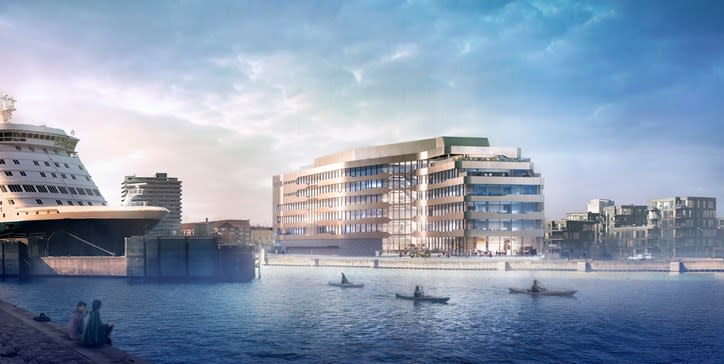
Getting our house in order
Although it is a very small part of our overall emissions footprint, we also prioritise initiatives to decarbonise all the everyday activities that are not part of our commercial business, i.e. through better procurement and waste management.
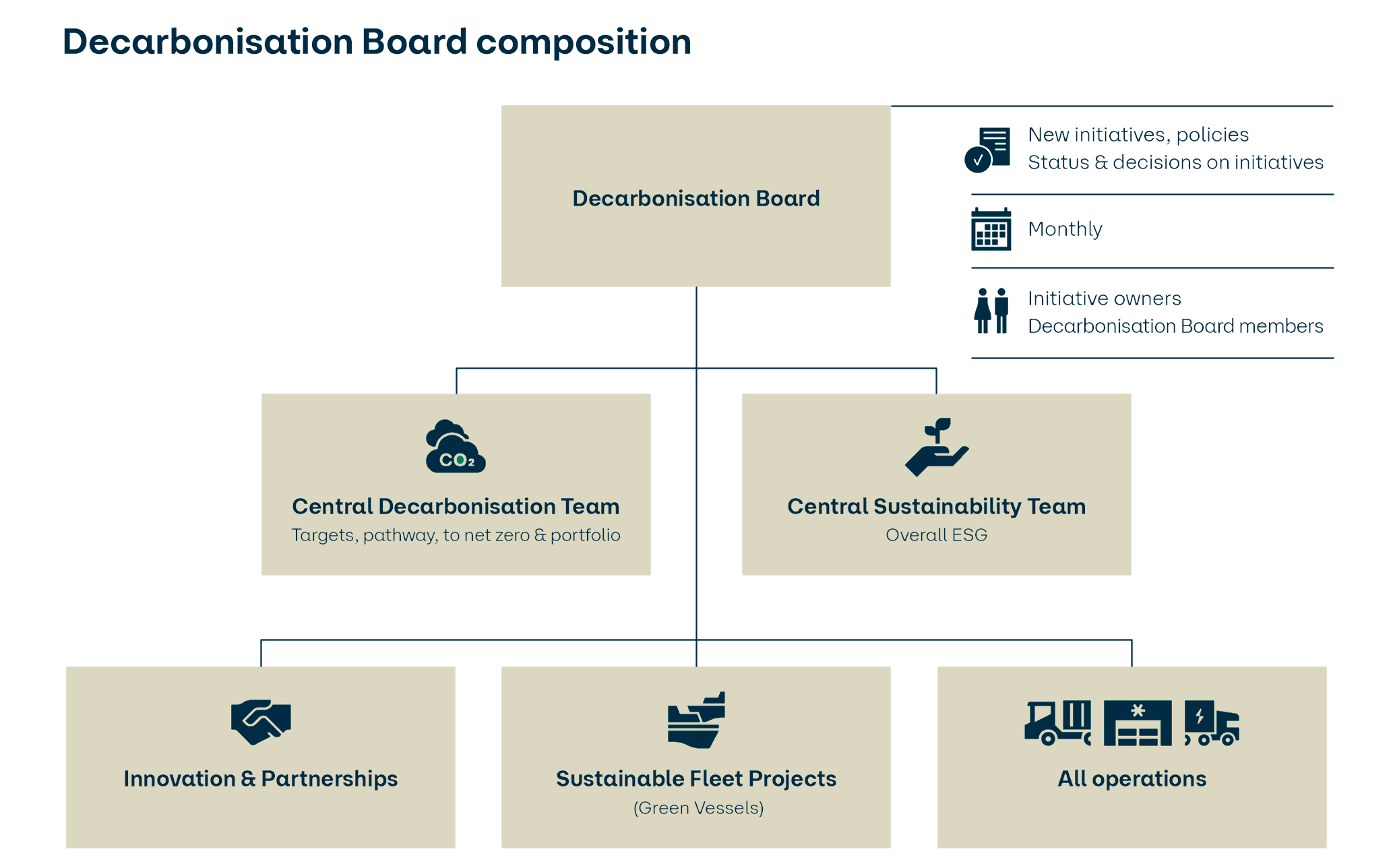
How we work with decarbonisation
Decarbonisation is a responsibility for everyone at DFDS, and there are several central teams heavily involved in guiding and driving our climate plans. In 2023, we launched a new unit, Group Decarbonisation, to accelerate progress in reducing emissions across all of our commercial activities.
With steering from our Decarbonisation Board, we ensure our targets are actionable by the whole of DFDS, and that we invest in the smartest way towards a net-zero future.
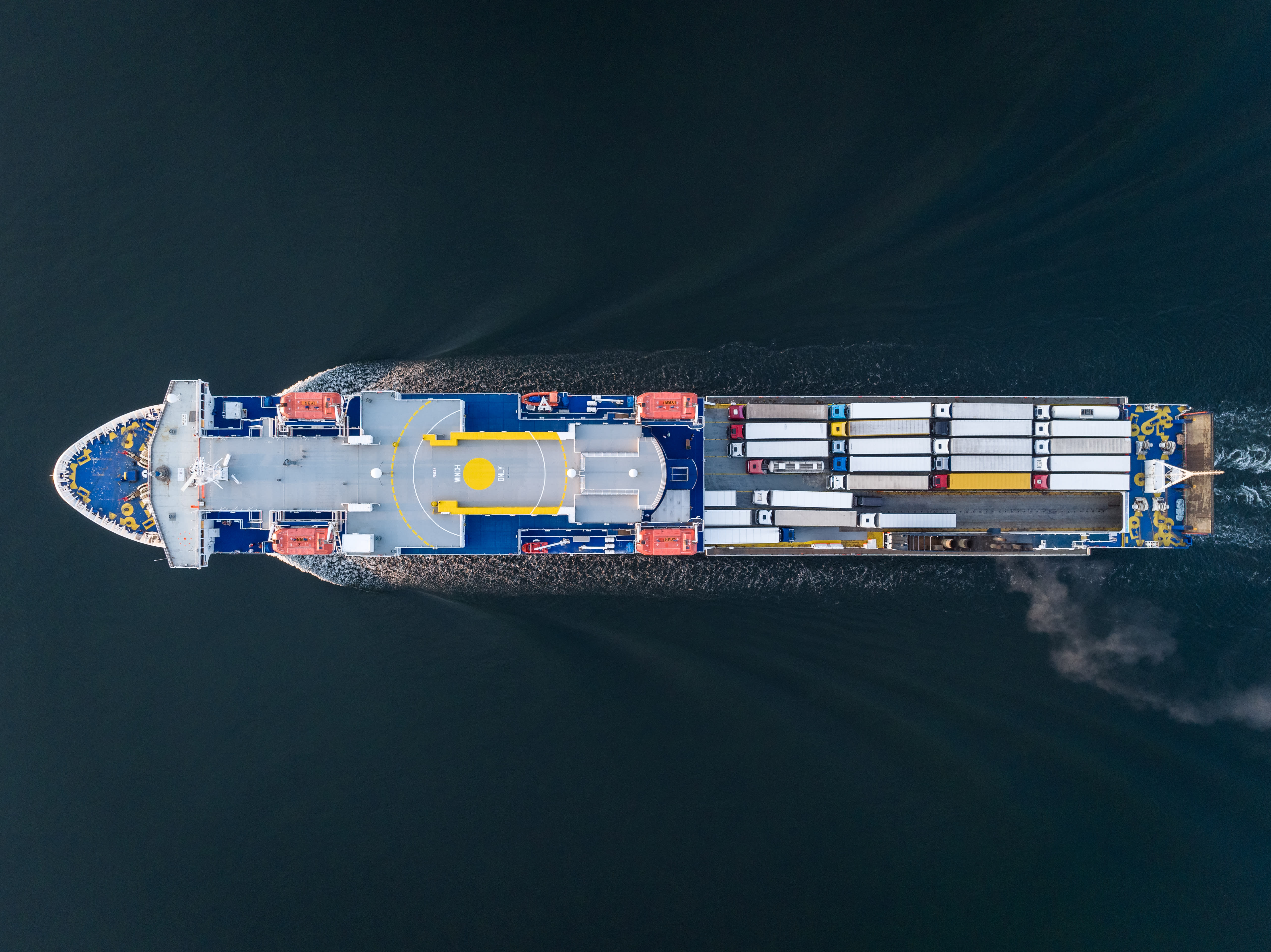
DFDS and Roskilde University collaborate on decarbonisation technology
Roskilde University and DFDS have entered into a partnership agreement that will contribute to new digital solutions for reducing Greenhouse Gas emissions in shipping and other transport sectors.

DFDS deploys 10 heavy-duty electric trucks in the UK
DFDS is set to become one of the biggest operators of heavy-duty electric trucks in the UK with the introduction of 10 electric trucks to deliver goods in east and northwest England and in Ireland.

Decarbonisation FAQs
Do you have questions about our decarbonisation strategy or how we measure results? Find the most frequently asked questions and answers here.
